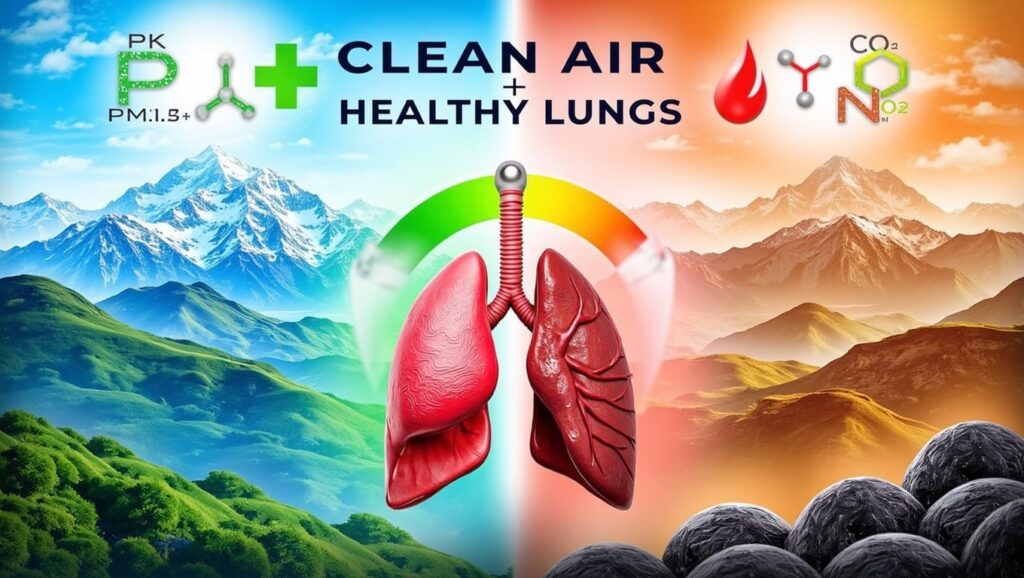Breathing in the Bigger Picture
Air quality is an often-overlooked factor in personal health, yet it plays a crucial role in respiratory well-being. With rising pollution levels and environmental changes, understanding the connection between air quality and respiratory health has never been more important. Exploring this relationship can empower individuals to make informed decisions about their health and environment.

What Constitutes Good Air Quality?
Good air quality is determined by low levels of pollutants such as particulate matter (PM2.5 and PM10), carbon monoxide, and nitrogen dioxide. According to the Environmental Protection Agency (EPA), air quality is measured using the Air Quality Index (AQI), which reflects the health risks associated with pollution levels. Clean air is essential for maintaining lung function, reducing inflammation, and preventing long-term diseases.
How Poor Air Quality Affects Respiratory Health
Exposure to polluted air can lead to a range of respiratory issues, including asthma, bronchitis, and even lung cancer. A study published in The Lancet found that chronic exposure to fine particulate matter increases the risk of respiratory infections and exacerbates pre-existing conditions. Vulnerable groups, such as children and the elderly, are particularly at risk due to their weaker immune systems and developing or aging lungs.
The Role of Urbanization and Climate Change
Rapid urbanization and climate change are key contributors to declining air quality. Cities often have higher concentrations of pollutants from vehicles, industries, and construction. Additionally, climate change intensifies allergens like pollen and mold, as reported by the World Health Organization (WHO). These environmental factors create a compounded impact on respiratory health, demanding urgent attention.
Evidence-Based Solutions to Improve Air Quality
Scientific studies emphasize the importance of reducing emissions and adopting green technologies to combat air pollution. For individuals, using air purifiers, wearing masks in high-pollution areas, and planting trees can mitigate exposure. Harvard’s T.H. Chan School of Public Health highlights that increasing access to clean energy sources significantly reduces airborne toxins.
Practical Steps for Daily Respiratory Care
Simple habits can significantly improve respiratory health. Practice breathing exercises to strengthen lung capacity, maintain a healthy diet rich in antioxidants, and stay hydrated to support mucosal linings in the respiratory tract. Avoid smoking and limit exposure to indoor pollutants such as cleaning chemicals. These steps ensure a proactive approach to lung health.

Take Control of the Air You Breathe
The air we breathe directly impacts our health, making it vital to prioritize air quality and adopt habits that support respiratory function. By understanding the risks and taking preventive measures, individuals can protect themselves and their families. Explore innovative solutions like the Official Formula of Nagano Lean Bodi Tonic Powder to bolster your body’s defenses, and take a step toward a healthier, more sustainable future.
See this interesting article about: Natural Detoxification


Pingback: HPV and Throat Cancer: A Critical Health Link – stay healthy today